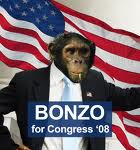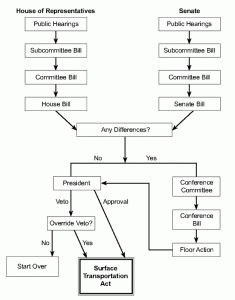Transcript of Civil Rights Act (1964)
An Act
To enforce the constitutional right to vote, to confer jurisdiction upon the district courts of the United States to provide injunctive relief against discrimination in public accommodations, to authorize the Attorney General to institute suits to protect constitutional rights in public facilities and public education, to extend the Commission on Civil Rights, to prevent discrimination in federally assisted programs, to establish a Commission on Equal Employment Opportunity, and for other purposes.
Be it enacted by the Senate and House of Representatives of the United States of America in Congress assembled, That this Act may be cited as the "Civil Rights Act of 1964".
TITLE I--VOTING RIGHTS
SEC. 101. Section 2004 of the Revised Statutes (42 U.S.C. 1971), as amended by section 131 of the Civil Rights Act of 1957 (71 Stat. 637), and as further amended by section 601 of the Civil Rights Act of 1960 (74 Stat. 90), is further amended as follows:
(a) Insert "1" after "(a)" in subsection (a) and add at the end of subsection (a) the following new paragraphs:
"(2) No person acting under color of law shall--
"(A) in determining whether any individual is qualified under State law or laws to vote in any Federal election, apply any standard, practice, or procedure different from the standards, practices, or procedures applied under such law or laws to other individuals within the same county, parish, or similar political subdivision who have been found by State officials to be qualified to vote;
"(B) deny the right of any individual to vote in any Federal election because of an error or omission on any record or paper relating to any application, registration, or other act requisite to voting, if such error or omission is not material in determining whether such individual is qualified under State law to vote in such election; or
"(C) employ any literacy test as a qualification for voting in any Federal election unless (i) such test is administered to each individual and is conducted wholly in writing, and (ii) a certified copy of the test and of the answers given by the individual is furnished to him within twenty-five days of the submission of his request made within the period of time during which records and papers are required to be retained and preserved pursuant to title III of the Civil Rights Act of 1960 (42 U.S.C. 1974--74e; 74 Stat. 88): Provided, however, That the Attorney General may enter into agreements with appropriate State or local authorities that preparation, conduct, and maintenance of such tests in accordance with the provisions of applicable State or local law, including such special provisions as are necessary in the preparation, conduct, and maintenance of such tests for persons who are blind or otherwise physically handicapped, meet the purposes of this subparagraph and constitute compliance therewith.
"(3) For purposes of this subsection--
"(A) the term 'vote' shall have the same meaning as in subsection (e) of this section;
"(B) the phrase 'literacy test' includes any test of the ability to read, write, understand, or interpret any matter."
(b) Insert immediately following the period at the end of the first sentence of subsection (c) the following new sentence: "If in any such proceeding literacy is a relevant fact there shall be a rebuttable presumption that any person who has not been adjudged an incompetent and who has completed the sixth grade in a public school in, or a private school accredited by, any State or territory, the District of Columbia, or the Commonwealth of Puerto Rico where instruction is carried on predominantly in the English language, possesses sufficient literacy, comprehension, and intelligence to vote in any Federal election."
(c) Add the following subsection "(f)" and designate the present subsection "(f)" as subsection "(g)": "(f) When used in subsection (a) or (c) of this section, the words 'Federal election' shall mean any general, special, or primary election held solely or in part for the purpose of electing or selecting any candidate for the office of President, Vice President, presidential elector, Member of the Senate, or Member of the House of Representatives."
(d) Add the following subsection "(h)":
"(h) In any proceeding instituted by the United States in any district court of the United States under this section in which the Attorney General requests a finding of a pattern or practice of discrimination pursuant to subsection (e) of this section the Attorney General, at the time he files the complaint, or any defendant in the proceeding, within twenty days after service upon him of the complaint, may file with the clerk of such court a request that a court of three judges be convened to hear and determine the entire case. A copy of the request for a three-judge court shall be immediately furnished by such clerk to the chief judge of the circuit (or in his absence, the presiding circuit judge of the circuit) in which the case is pending. Upon receipt of the copy of such request it shall be the duty of the chief justice of the circuit or the presiding circuit judge, as the case may be, to designate immediately three judges in such circuit, of whom at least one shall be a circuit judge and another of whom shall be a district judge of the court in which the proceeding was instituted, to hear and determine such case, and it shall be the duty of the judges so designated to assign the case for hearing at the earliest practicable date, to participate in the hearing and determination thereof, and to cause the case to be in every way expedited.
An appeal from the final judgment of such court will lie to the Supreme Court.
"In any proceeding brought under subsection (c) of this section to enforce subsection (b) of this section, or in the event neither the Attorney General nor any defendant files a request for a three-judge court in any proceeding authorized by this subsection, it shall be the duty of the chief judge of the district (or in his absence, the acting chief judge) in which the case is pending immediately to designate a judge in such district to hear and determine the case. In the event that no judge in the district is available to hear and determine the case, the chief judge of the district, or the acting chief judge, as the case may be, shall certify this fact to the chief judge of the circuit (or, in his absence, the acting chief judge) who shall then designate a district or circuit judge of the circuit to hear and determine the case.
"It shall be the duty of the judge designated pursuant to this section to assign the case for hearing at the earliest practicable date and to cause the case to be in every way expedited."
Transcript of Civil Rights Act (1964)
Here you can read the transcript in its entirety.























